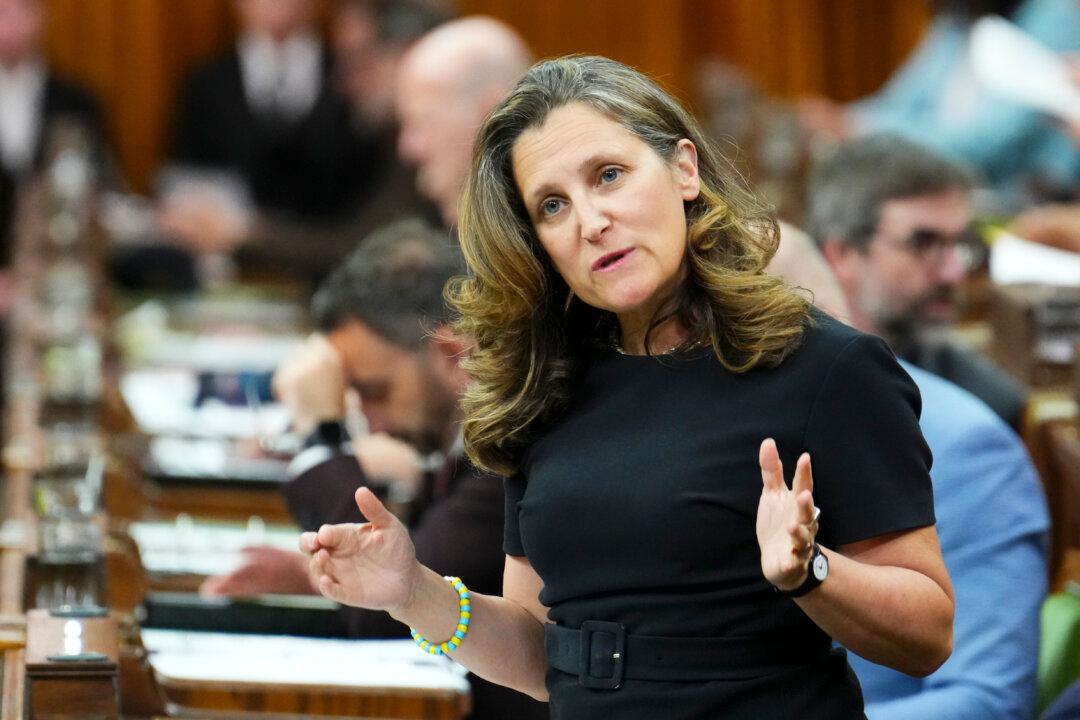In-house research by the federal government found that some participants in an online focus group thought the budget speech delivered by Finance Minister Chrystia Freeland was “self-congratulatory.”
The study was conducted by market research firm Leger on behalf of the Department of Finance, to gauge public opinion on the Mar. 28 budget speech, as first covered by Blacklock’s Reporter. The findings were released on Mar. 31.





